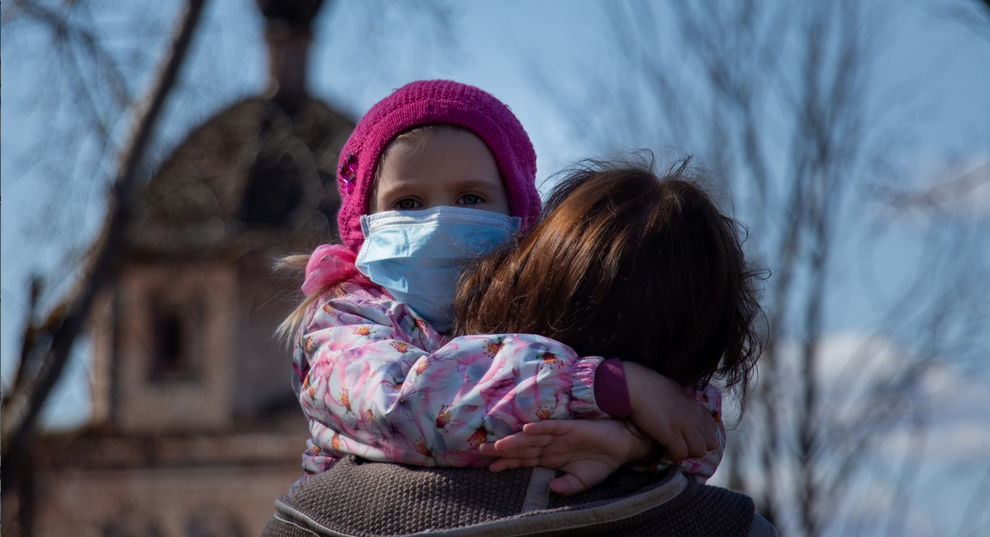Reasons for Reductions in Routine Childhood Immunisation Uptake during the COVID-19 Pandemic in Low- and Middle-Income Countries: A Systematic Review

Affiliation
Imperial College London (Pinto, Shariq, Ranasinghe, Budhathoki, Skirrow, Whittaker, Seddon); Stellenbosch University (Seddon)
Date
Summary
"As nations shift focus towards recovery of immunisation coverage, it is essential to understand reasons behind non-attendance and non-delivery of vaccination....Additionally, understanding factors contributing to this decline is fundamental to prevent similar future disruptions in pandemic-like contexts."
The coronavirus disease 2019 (COVID-19) pandemic has resulted in a substantial decline in routine immunisation coverage in children globally, especially in low- and middle-income countries (LMICs). Such declines have resulted in significant setbacks in elimination of vaccine-preventable diseases such as measles and polio. This systematic review summarises pandemic-related reasons for disruptions to routine child immunisations in LMICs.
On February 11, 2022, the researchers searched 6 databases - MEDLINE, Embase, Global Health, CINAHL, Scopus, and MedRxiv - for observational and qualitative studies published from January 2020 onward. Reasons for disruption were defined with descriptive codes; cross-sectional (quantitative) data were summarised as mean percentages of responses weighted by study population, and qualitative data were summarised narratively. Thirteen studies were included describing reasons behind disruptions; 7 cross-sectional (quantitative), 5 qualitative, and 1 mixed methods. Seventeen reasons for disruptions were identified.
The researchers note that, although the findings of this review focus on pandemic-related drivers of reduced vaccination, vaccine confidence was already a concern prior to the COVID-19 pandemic. Thus, previously identified, non-pandemic-related factors driving vaccine hesitancy (e.g., distrust of health professionals) are likely to remain relevant. Discussions for and against the use of COVID-19 vaccines - especially between health professionals and politicians - may have also heightened hesitancy towards other vaccines. Furthermore, previously identified barriers to vaccination are likely to also remain relevant. These considerations highlight the importance of considering additional factors underlying both vaccine hesitancy and barriers to accessing healthcare when designing efforts for immunisation recovery, and of monitoring the impact of the pandemic on routine paediatric vaccine confidence.
In conclusion: "As nations develop efforts to recover missed immunisations, it is essential to invest in measures that ensure continuity of safe vaccine delivery alongside strong public health campaigns advertising availability and safety of routine vaccination to encourage routine immunisation uptake and attendance to health-services, even in the context of a pandemic."
The coronavirus disease 2019 (COVID-19) pandemic has resulted in a substantial decline in routine immunisation coverage in children globally, especially in low- and middle-income countries (LMICs). Such declines have resulted in significant setbacks in elimination of vaccine-preventable diseases such as measles and polio. This systematic review summarises pandemic-related reasons for disruptions to routine child immunisations in LMICs.
On February 11, 2022, the researchers searched 6 databases - MEDLINE, Embase, Global Health, CINAHL, Scopus, and MedRxiv - for observational and qualitative studies published from January 2020 onward. Reasons for disruption were defined with descriptive codes; cross-sectional (quantitative) data were summarised as mean percentages of responses weighted by study population, and qualitative data were summarised narratively. Thirteen studies were included describing reasons behind disruptions; 7 cross-sectional (quantitative), 5 qualitative, and 1 mixed methods. Seventeen reasons for disruptions were identified.
- In quantitative studies (total respondents = 2,853), the most common reasons identified were fear of COVID-19 and consequential avoidance of health centres (41.2%, SD ±13.3%), followed by transport challenges preventing both families and healthcare professionals from reaching vaccination services (11.1% SD ±16.6%). Most reasons stemmed from reduced healthcare-seeking (83.4%), as opposed to healthcare-delivery issues (15.2%).
- Qualitative studies showed a more even balance of healthcare-seeking (49.5%) and healthcare-delivery issues (50.5%), with fear of COVID-19 remaining a major identified issue (total respondents = 92). The most common reasons for disruption were parental fear of COVID-19 and avoidance of health services. One study highlighted that supply of vaccines was not an issue and that education and encouragement from others was an important factor for both the delivery and the seeking of immunisations, respectively. Specifically, the study suggested that healthcare providers (HCPs) felt a moral obligation to continue providing routine immunisation services and were encouraged by family members to do so. Similarly, some parents continued to seek routine immunisations for their children because they had been educated on the importance of these prior to the COVID-19 pandemic.
The researchers note that, although the findings of this review focus on pandemic-related drivers of reduced vaccination, vaccine confidence was already a concern prior to the COVID-19 pandemic. Thus, previously identified, non-pandemic-related factors driving vaccine hesitancy (e.g., distrust of health professionals) are likely to remain relevant. Discussions for and against the use of COVID-19 vaccines - especially between health professionals and politicians - may have also heightened hesitancy towards other vaccines. Furthermore, previously identified barriers to vaccination are likely to also remain relevant. These considerations highlight the importance of considering additional factors underlying both vaccine hesitancy and barriers to accessing healthcare when designing efforts for immunisation recovery, and of monitoring the impact of the pandemic on routine paediatric vaccine confidence.
In conclusion: "As nations develop efforts to recover missed immunisations, it is essential to invest in measures that ensure continuity of safe vaccine delivery alongside strong public health campaigns advertising availability and safety of routine vaccination to encourage routine immunisation uptake and attendance to health-services, even in the context of a pandemic."
Source
PLOS Glob Public Health 3(1): e0001415. https://doi.org/10.1371/journal.pgph.0001415. Image credit: © Drug Addiction Clinic Vita via Imperial College London (Creative Commons License)
- Log in to post comments
